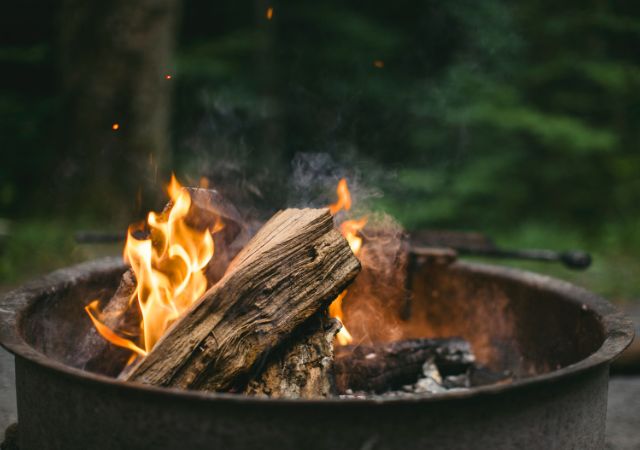At any time during the day or night, a specific type of individual or group is prepping for something. What is it they are preparing for?
A prepper is an individual who prepares themselves and their families for potential disasters or emergencies. While some may view prepping as an extreme or unnecessary practice, the reality is that disasters can strike at any time and being prepared can mean the difference between life and death. Preppers are individuals who take responsibility for their own well-being and the well-being of their families.
There are various reasons why people choose to become preppers. Some may have experienced a past disaster and want to be better prepared in the future, while others may simply want to be self-sufficient and not rely on external resources. Whatever their motivations may be, preppers take their preparations seriously and are constantly evaluating and updating their plans to ensure they are ready for whatever may come their way.
What Are Preppers Preparing For?
The simplest answer is that preppers are preparing to survive. Preppers are a group of proactive individuals preparing for unforeseen emergencies such as storms, floods, earthquakes, pandemics, and the resulting dangers. Their prime focus is on stocking supplies, gaining skills, and acquiring knowledge about survival.
On a larger scale, preppers prepare for a wide range of scenarios, from natural disasters like hurricanes and earthquakes to man-made disasters like terrorist attacks or civil unrest. They may stockpile food, water, and medical supplies, or they may learn skills like hunting, fishing, and first aid to help them survive in the wild. Some preppers even build underground bunkers or fortify their homes to protect themselves from potential threats.
Hurricanes
Hurricanes are massive storms that can cause significant damage to homes and infrastructure. Preppers prepare for hurricanes by stocking up on non-perishable food, water, and other supplies. They also secure their homes with hurricane shutters, reinforce doors and windows, and clear any debris that could become a projectile during the storm. Preppers also have a plan for evacuation in case the storm becomes too dangerous to stay.
Earthquakes
Earthquakes can strike at any time, and preppers prepare for them by securing their homes and belongings. They may bolt bookcases and other heavy furniture to walls, secure water heaters, and install automatic gas shutoff valves. Preppers also have an emergency kit that includes first aid supplies, food, water, and communication devices. They also have a plan for evacuation if necessary.
Tornadoes
Tornadoes are violent storms that can cause significant damage to homes and infrastructure. Preppers prepare for tornadoes by having a safe room or shelter in their homes or nearby. They also stock up on non-perishable food, water, and other supplies. Preppers also have an emergency kit that includes first aid supplies, communication devices, and a battery-powered radio to stay informed about the storm’s progress.
Floods
Floods can occur due to heavy rain, storm surge, or other natural disasters. Preppers prepare for floods by having sandbags, plastic sheeting, and other materials to protect their homes. They also have a plan for evacuation if necessary, and they stock up on non-perishable food, water, and other supplies. Preppers also have an emergency kit that includes first aid supplies, communication devices, and a battery-powered radio to stay informed about the flood’s progress.
Terrorism
Terrorism is another example of what preppers are preparing for. The fear of terrorist attacks is a reality that preppers take seriously. They prepare for the worst-case scenario by stocking up on supplies, learning self-defense, and having a plan in place for evacuation or sheltering in place. Preppers believe that in the event of a terrorist attack, the government may not be able to provide immediate assistance. Therefore, it is essential to have enough supplies to last for an extended period.
Nuclear War
Preppers are preparing for the possibility of nuclear war. The threat of nuclear war is a reality that preppers take seriously. They prepare for the worst-case scenario by having a fallout shelter, stocking up on supplies, and learning about radiation exposure. Preppers believe that in the event of a nuclear attack, the government may not be able to provide immediate assistance. Therefore, it is essential to have enough supplies to last for an extended period.
Pandemics
Preppers are preparing for the possibility of pandemics. The fear of pandemics is a reality that preppers take seriously. They prepare for the worst-case scenario by stocking up on medical supplies, learning about infectious diseases, and having a plan in place for quarantine or isolation. Preppers believe that in the event of a pandemic, the government may not be able to provide immediate assistance. Therefore, it is essential to have enough supplies to last for an extended period.
Economic Collapse
Preppers are also preparing for the possibility of an economic collapse. The fear of an economic collapse is a reality that preppers take seriously. They prepare for the worst-case scenario by having a stockpile of food, water, and other supplies, learning survival skills, and having a plan in place for bartering or trading. Preppers believe that in the event of an economic collapse, the government may not be able to provide immediate assistance. Therefore, it is essential to be self-sufficient and have the necessary supplies to survive without relying on outside help.
Civil Unrest
Civil unrest is a situation where a group of people within a country or a city become violent and start to protest against the government or other groups. It can be triggered by various reasons such as political instability, economic crisis, natural disasters, or social injustice. Civil unrest can lead to riots, looting, vandalism, and other forms of violence that can cause damage to properties and even loss of life.
Preppers prepare for civil unrest by taking various steps to ensure their safety and that of their families. Some of the steps they take include:
- Stockpiling food and water in case of a long-term disruption of services
- Having a bug-out bag ready in case they need to evacuate their home
- Securing their home with sturdy locks, security cameras, and other measures to deter potential looters
- Learning self-defense skills to protect themselves and their families
- Staying informed about the situation through various news sources and social media
It is important to note that civil unrest is a complex and unpredictable situation, and even the most prepared individuals may find themselves in danger. Preppers understand that they cannot control the situation, but they can control their response to it. By being prepared, they can increase their chances of survival and minimize the impact of the situation on their lives.
Job Loss
Preppers are preparing for the possibility of losing their job. This may come as a result of economic instability, a company going bankrupt, or automation taking over jobs. Preppers are preparing by having a financial plan in place, reducing debt, and having a stockpile of food and supplies to reduce expenses during a job loss.
Medical Emergencies
Preppers are also preparing for medical emergencies by having a first aid kit and medical supplies on hand. They may also have training in basic medical procedures to help themselves or others in an emergency. Preppers may also have a plan in place to get to a hospital or other medical facility in case of an emergency.
Power Outages
Power outages are one of the most anticipated effects of a natural disasters. Preppers prepare for power outages by having backup sources of power, such as generators, solar panels, or batteries. They may also have a stockpile of non-perishable food and water, as well as a way to cook food without electricity. Preppers may also have a plan in place to stay warm during a power outage in cold weather.
Home Invasions
In dire situations, life and property become targets. Preppers are preparing for the possibility of a home invasion by having a security plan in place. This may include having a security system, reinforced doors and windows, and weapons for self-defense. Preppers may also have a plan in place to evacuate their home in case of an invasion.
How do Preppers Assess Risks?
Whether it is a made-made disaster or a natural disaster, the risks you face may be similar. These events pose serious risks, and require a specific set of actions to reduce their effects.
With natural disasters, your current location can determine the risk rate of a particular risk occurring. In essence, your location often plays a crucial role in how you assess the risks of a hurricane. For example, some areas such as the Caribbean and the east and south coasts of the United States are more at risk to hurricanes.
Preppers often go through historical events and correlate the chances of the risk occurring in their area. In many cases data from previous events shows that highly populated areas and economic activities in these areas are especially vulnerable to damage and disruption caused by extreme weather conditions.
How do Preppers Prepare for Anything and Everything?
Preppers are physically and psychologically trained in disaster management and are experts in handling and preparing for a natural disaster. Usually, each type of disaster, either man-made or natural, will result in similar outcomes:
- Outbreak of diseases
- Leave people psychologically affected
- Loss of food and supplies
- Loss of property and lives
Preppers prepare for every possible form of disaster by creating evacuation plans, stockpiling supplies, and knowing when to activate emergency plans.
Creating Evacuation Plans
Some forms of natural disasters require immediate evacuation. Such disasters are usually hurricanes, forest fires, floods, etc. Preppers have an extra set of plans that includes assisting the community members in helping their people. Evacuation plans also focus on routes, conditions under which the evacuation must be done, and instructions about when and how to evacuate.
Stockpiling Supplies
Disasters can lead to power outages, affect water supplies, damage roads and other infrastructure and cause food and medication shortages. For this, the preppers strategically assess the risks and needs and determine what and how much supplies to buy to prevent dehydration and starvation. At the very minimum, they will stockpile:
- Preserved foods
- Water
- Safety and protection tools
- Rescue equipment
- Building items
- Cleaning products
Practicing Emergency Plans
Emergency plans go into action when disasters strike. However, the only way to assess if your emergency plan will work is to test it. Testing allows you to identify any weaknesses and make changes to strengthen the plan for a real natural disaster.
Benefits of Prepping for Natural Disasters
Preppers firmly believe that the difference between survival and loss is preparedness. It is very difficult to fault them for this stance because history has shown that disasters are almost always accompanied by damaging impacts.
Here are some of the benefits of prepping for natural disasters and staying prepared:
- Prepping can help you limit or reduce the effect of disaster to an extent: Communities and their populations are very much vulnerable to natural disasters, and if you have proper planning, you can reduce their catastrophic effects to some extent.
- Prepping can save lives: Staying prepared has always been a matter of life and death. If you have pre-planned evacuation and escape routes, it can help you survive a disaster. By prepping, you can reduce occurrences of dehydration and starvation just by having proper plans and supplies.
- Prepping makes you fearless: In many cases disasters can take a psychological toll on many people, and there is no possible way of preventing these opposing psychological effects. However, staying prepared can take away or reduce your fears.
- Prepping makes it easier to recover from the disaster: Even with superb preventive measures, a disaster can result in huge loss in both life and property. But, the key benefit of prepping is that it ensures that the results of a disaster are not devastating.






